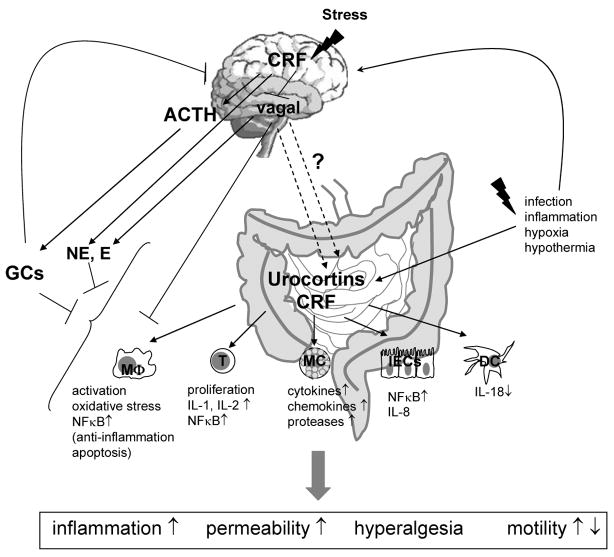Figure 1. Putative role of central and peripheral CRF signaling pathways to influence immune processes and potential implications in stress-related IBD and IBS symptoms.
Exposure to central or peripheral stressors activates the HPA axis and/or peripheral CRF/urocortin release via alterations of autonomic nervous system and/or additional unknown pathways. Immune cells such as macrophages (Mφ), T lymphocytes (T), mucosal mast cells (MC), dendritic cells (DC) or intestinal epithelial cells (IECs) respond to CRF receptor signaling mainly by promoting inflammation. Proinflammatory cytokines enhance inflammation, increase permeability and change local neuronal activity which can alter pain reception and intestinal function. Increased circulating glucocorticoids (GC), and catecholamines and decreased parasympathetic activity induced by central CRF exert anti-inflammatory effects which may counter-regulate inflammatory processes in the gut.

